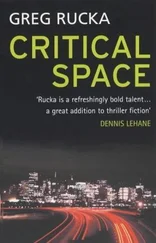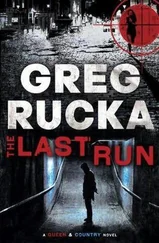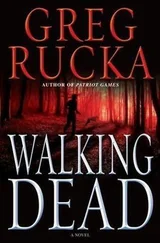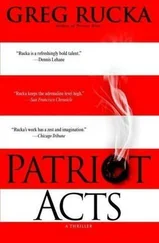Greg Rucka - A gentleman_s game
Здесь есть возможность читать онлайн «Greg Rucka - A gentleman_s game» весь текст электронной книги совершенно бесплатно (целиком полную версию без сокращений). В некоторых случаях можно слушать аудио, скачать через торрент в формате fb2 и присутствует краткое содержание. Жанр: Триллер, на английском языке. Описание произведения, (предисловие) а так же отзывы посетителей доступны на портале библиотеки ЛибКат.
- Название:A gentleman_s game
- Автор:
- Жанр:
- Год:неизвестен
- ISBN:нет данных
- Рейтинг книги:3 / 5. Голосов: 1
-
Избранное:Добавить в избранное
- Отзывы:
-
Ваша оценка:
- 60
- 1
- 2
- 3
- 4
- 5
A gentleman_s game: краткое содержание, описание и аннотация
Предлагаем к чтению аннотацию, описание, краткое содержание или предисловие (зависит от того, что написал сам автор книги «A gentleman_s game»). Если вы не нашли необходимую информацию о книге — напишите в комментариях, мы постараемся отыскать её.
A gentleman_s game — читать онлайн бесплатно полную книгу (весь текст) целиком
Ниже представлен текст книги, разбитый по страницам. Система сохранения места последней прочитанной страницы, позволяет с удобством читать онлайн бесплатно книгу «A gentleman_s game», без необходимости каждый раз заново искать на чём Вы остановились. Поставьте закладку, и сможете в любой момент перейти на страницу, на которой закончили чтение.
Интервал:
Закладка:
From the corner of his eye, he saw the blackness of the tunnel open to the harsh light of the station.
He pulled the gun from his waist, put the barrel in his mouth, and pulled the trigger. • It happened again three minutes later, on the Bakerloo Line, as the train pulled into Piccadilly Circus. • And again, seven minutes after that, on the Northern Line, at King's Cross. • When the final numbers were in, the death toll stood at three hundred and seventy-two. Very few of these fatalities came from direct contact with the terrorists, all three of whom had used essentially the same technique: the gun as the instrument of terror, to empty the car and to buy time; the petrol as the primary mechanism of attack, to set the trains aflame and to force them to stop on the tracks.
As anticipated, the Underground suffered from not one but two weaknesses, and the terrorists had exploited both. The first was that, at any given time on the tube, there were more trains in motion than there were stations to receive them. A station closure, therefore, or an instance of track blockage would result in multiple trains stacking up between stations. If those trains were then forced to evacuate their passengers, the evacuees faced walks of varying lengths through the tunnels until they could reach appropriate access back to street level. With most of the tunnels one hundred feet or more beneath street level, it made for quite a trek.
In and of itself not life-threatening, but certainly an added complication for riders and rescue teams, should the situation ever arise.
It was the second weakness that made the situation not simply life-threatening but a death trap. The Underground had no mechanical means to circulate air, fresh or otherwise. No air-conditioning. No fans. Air moved through the tunnels and the stations as a result of the movement of the trains, forcing dead air up and out at stops and other ventilation points, sucking new air into its wake.
While the cars on the Underground were constructed with fire-resistant and fire-retardant materials, gasoline can ignite dirt. With three trains set ablaze on the three busiest London lines, all within minutes of one another, the tube had come to a violent and convulsive halt. Cars evacuated into tunnels that swiftly filled with roiling clouds of dense black smoke, an orgy of burning plastics that in turn spawned their own toxic gases. While counterterrorist and emergency service personnel responded as best they could, as fast as they could, civilians succumbed to the lethal mixture of poisonous air and their own panic.
King's Cross, which had seen a fatal fire in 1987 that claimed thirty lives, suffered the worst, as dozens of riders were trampled to death in the panicked attempt to flee the station. • An added tragedy came to light in late August, when The Guardian ran an article citing an uncirculated report commissioned by the Home Office through the Security Services at the request of the Government. The report had been undertaken specifically to determine what, if any, exploitable weaknesses existed in the public transport systems in and around London, and it had concluded that the Underground-despite massive counterterrorism measures taken in the past-was still vulnerable to "a coordinated attack directed against those traits unique to the system."
Further investigation revealed that this document had actually enjoyed limited circulation and support, until it was killed by a senior civil servant in the Home Office, who had unfortunately given his reasons in writing. "While the report is admirable in its concern," he had written, "it fails to take into account the difficulties, both financially and in terms of public discomfort and inconvenience, that a retrofitting of the Underground would require. Given the unlikelihood of such a coordinated effort as described, and the pointlessness of the result of such speculative mass murder, the author's suggestions shall be set aside until such time as action becomes feasible."
Resignations followed immediately, culminating, in late September, with the withdrawal from public life of the aforementioned senior civil servant at the Home Office.
2
London-Camden, Regent's Park Terrace 07 August 1551 GMT It was a peculiarity to those in Tara Chace's line of work, their habits and hobbies, the things they would obsess upon in lieu of family and friends.
Tom Wallace, for instance, had put his passion into cars, specifically into the Triumph, and more precisely into the Triumph Spitfire MK I, 1962 model year. Wallace had, in the years Chace had known him, acquired four of the vehicles. He had tenderly restored each, enjoying its comfort and power in his free time, then sold the previous to make room for the next. He hunted the Triumph online and in newspapers, engaged in long, enthusiast correspondence with others of the Triumph religion, and generally poured every pound and pence not vital to his day-to-day existence into the hobby.
The late Edward Kittering had shared Wallace's lust for internal combustion, but in his case it had been motorcycles, and like Wallace, he'd been a devotee of a particular make and model, the Buell Thunderbolt. Kittering had been in the Section almost three years before his death from an apparent brain aneurysm, and in that time she'd seen him go through five bikes, and ridden two of them herself. They were, in her opinion, nothing more than two wheels ornamented with an overactive engine and a saddle, an opinion Kittering had often mocked her for voicing. He had been a far less discriminating collector than Wallace, his only criterion that the motorcycle be built prior to 1996, when the Harley-Davidson purchase of Buell had led to a redesign of the bike, and the motorcycle had "gotten all nice and proper like," in Kittering's words.
Chace had inherited the last of Kittering's bikes, a black and yellow 1995 Thunderbolt S2T that made her feel like a wasp whenever she rode it. She didn't ride it often, traffic in London being a perpetual nightmare and public transport being more than sufficient to service most of her needs. The Thunderbolt was expensive as well; on those rare occasions when she did ride it, it would invariably break down. Whereas Kittering had the patience and interest to tinker with the vehicle, Chace could hardly be bothered.
But she kept the motorcycle anyway, because it was one of her only links to Kittering, and because in the year before he died, they had been lovers. The affair had ended badly, with Chace breaking Kittering's heart. His death had left many things unresolved, and so she kept the bike, and hoped that in doing so it would bring more closure than grief.
Nick Poole, the current Minder Two, was a passionate cook. The kitchen of his Spice Quay flat, in the shadow of Tower Bridge, had been renovated with restaurant-grade appliances. Poole invested in only the finest cookware and tried-generally in vain, due to the unreliable schedule of their work-to grow his own herbs for seasoning. He took cooking classes, read cookbooks, and was zealous in his pursuit of "the fresh." The week after Wallace had departed the Section, leaving Chace as Minder One and Poole suddenly elevated to Minder Two, he'd invited her over for a dinner of sole paupiette with crab and smoked salmon mousseline, watching her like a hawk until she'd taken her first bite. The meal had been extraordinary, as fine as any Chace had tasted when she'd run alongside the Sloanes and their wealth, and her praise of the dinner had done more for her relationship with Poole than any interaction they'd had in the office or in the field.
As for Chris Lankford, Minder Three-Provisional, he was still too new to the Section for Chace to have discovered his particular passion, though she was certain he had one. She guessed it was something boring, perhaps philately.
Читать дальшеИнтервал:
Закладка:
Похожие книги на «A gentleman_s game»
Представляем Вашему вниманию похожие книги на «A gentleman_s game» списком для выбора. Мы отобрали схожую по названию и смыслу литературу в надежде предоставить читателям больше вариантов отыскать новые, интересные, ещё непрочитанные произведения.
Обсуждение, отзывы о книге «A gentleman_s game» и просто собственные мнения читателей. Оставьте ваши комментарии, напишите, что Вы думаете о произведении, его смысле или главных героях. Укажите что конкретно понравилось, а что нет, и почему Вы так считаете.












